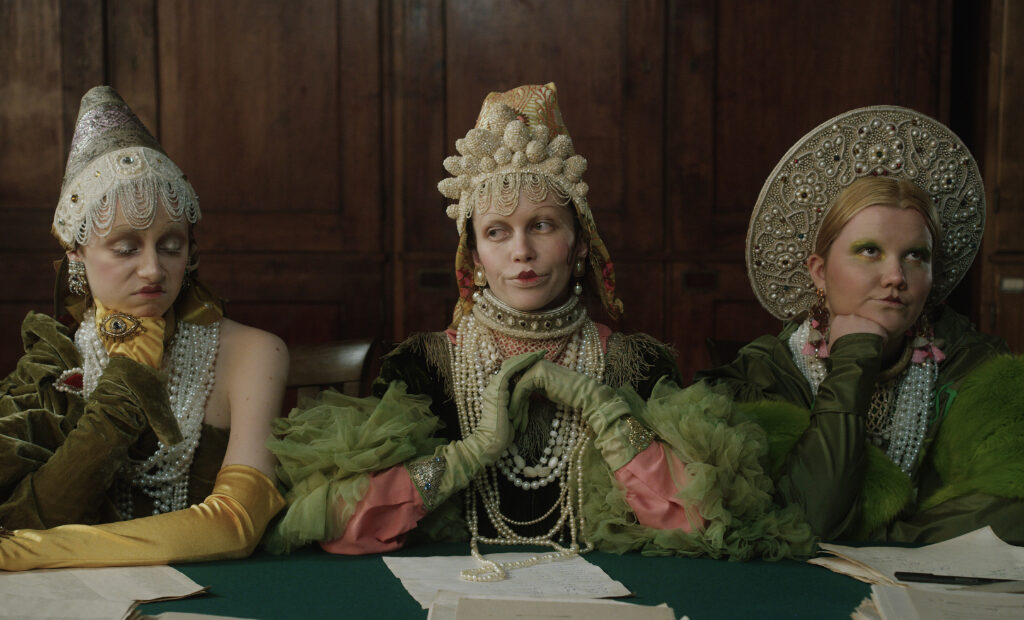Tzarevna Scaling (Doch rybaka)

Uldus Bakhtiozina’s glorious film conjures up a dream factory of images, almost functioning as a Russian reinterpretation of Alice in Wonderland. This truly amounts to an auteur piece: Bakhtiozina writes, directs and edits, and is also credited with both production and costume design. The latter is crucial to note because a high cinematic style and a close attention to fabric anchor the work, more so than appeals to conventional narrative. Proceedings are instead populated with clothes and attire, outfits and accoutrements. The emphasis on fashion – outré, period and contemporary – provides the nonlinear structure with extravagant moorings.
The premise is simple and fabular: a fishmonger’s daughter, Polina (Alina Korol), has trouble sleeping because she worries about her brother. After drinking some suspect tea offered to her by a kindly old lady, she plunges into a fantasy world of traditional Slavic headdresses and Soviet architecture, where she embodies the archetypical figure of the Tsar’s daughter. It’s a movie very much concerned with familial lineage and social memory: folkloric visual elements are juxtaposed against the gaudy emblems of modern Russia, including, among other jottings, a taste for shiny tooth caps. CG interludes, resembling glassy title cards to hip-hop videos, interrupt the succession of odd, colourful compositions.
The camera keeps the assorted medley of grotesques in a perpetual state of distorted perspective, framing the grimy seafood concession stand just at it does the opulent palatial interiors. DP Michael Znakov has an observant way with food, whether it’s in the stark presentation of grated fish skins or in the moody pan across a still life of lavish bourgeois appetisers. Animals of fairytale appear and vanish: a frog eyes itself up by a mirror; a theatre of men dressed as goats dance in unison. Symbols of a collective cultural life are dotted throughout, reappropriated and retranslated. These icons are at least communal in the confines of the imaginary, Bakhtiozina suggests, even if class divides in lived reality thwart material access to the things they represent.
A particularly strong sequence has women parading about with swans on their heads, swimming in operatic synergy around an indoor pool. In keeping with the disjointed image-making, it ends with an arm wrestle. All these set pieces, which constitute the abstract and the surreal, aim towards a complicated but nevertheless nostalgic ode, one that celebrates national history and the echoes of ancestral labour. To illustrate: at one point, Polina stares down into the arctic ice, readying her fishing gear. This fantastical moment doubles as the past revisited. She’s told by a bystander: “Now you catch. Catch!”
Joseph Owen
Tzarevna Scaling (Doch rybaka) does not have a UK release date yet.
Read more reviews from our Berlin Film Festival 2021 coverage here.
For further information about the event visit the Berlin Film Festival website here.
Watch the trailer for Tzarevna Scaling (Doch rybaka) here:


























Facebook
Twitter
Instagram
YouTube
RSS